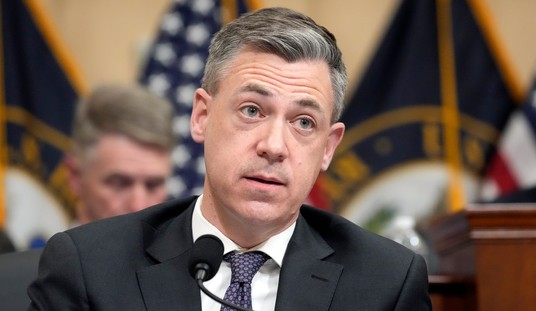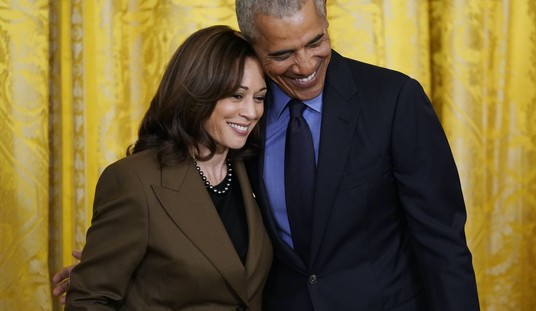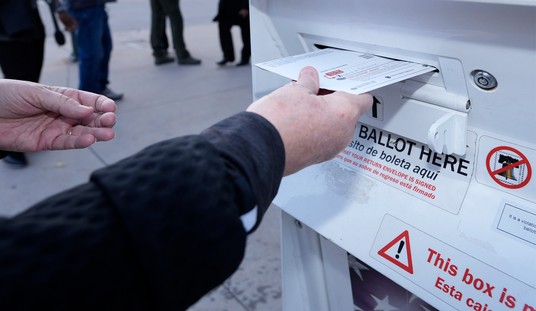Four journalists were ejected from a military commission pre-trial hearing for alleged terrorist and Guantanamo Bay detainee Omar Khadr after reporting the name of a protected witness and one-time interrogator, the Pentagon acknowledged Thursday.
“We threw some people out there today because they disclosed the identity of a protected witness,” said Pentagon Press Secretary Geoff Morrell. “He had been clearly identified as someone who needed to be protected. These newspapers identified him by name.”
Khadr, a Canadian citizen who was taken into American custody at age 15 in Afghanistan, is accused of murdering U.S. Army Sergeant First Class Christopher Speer, whom the Pentagon said died from a hand grenade. Khadr’s attorneys contend he was the victim of abuse while in government custody, a claim for which they called a former military interrogator to bolster.
The witness, whose identity was concealed and identified for purposes of the commission only as “Interrogator No. 1,” recounted a technique he used in 2002 on Khadr. Interrogators, the witness said, told Khadr a “fictitious” tale of a convicted Afghan youth gang-raped “by a bunch of big black guys and big Nazis” in an American prison.
Aghast and perhaps enraged at Interrogator No. 1’s testimony, the press ignored Pentagon protocol mandating that those witnesses awarded a protective order cannot be named in press accounts. Those reporters who disregarded that ground rule were: Carol Rosenberg of McClatchy Newspapers, Paul Koring of the Globe and Mail, Steven Edwards of Canwest Newspapers and Michelle Spephard of the Toronto Star.
Reviewing the day’s events with a gaggle of reporters, the military’s chief prosecutor Navy Captain John Murphy said the protective order was a necessity and that the press been awarded an “extraordinary” degree of access.
“You see so much,” he said. “Our position is, and I hope it would be given a lot of thought, that publishing entities carries some risk and the judge recognizes that risk when he issues these protective orders.”
An hour later, the left-leaning Washington Independent’s Spencer Ackerman reports, four journos received word from Pentagon brass they had been barred from base, and would no longer be permitted to cover the proceedings on-site.
Khadr’s team of civilian defense attorneys insists his 2002 testimony was coerced by threats of rape and even death.
But Khadr’s case is not one in which a frightened, innocent boy submits to the demands of ruthless military interrogators; he was a trained, active operative of a known terrorist organization who sought and achieved the deaths of Americans. The boy-soldier only alleged abuse when it expedient and apparent he would not be released.
“These statements weren’t wrestled from Omar Khadr,” said Jeff Groharing, a member of the prosecution team, at the outset of the pre-trial two weeks ago. “He talked openly, confidently and comfortably about his knowledge of al-Qaeda.”
The facts:
- At age ten, Khadr was relocated by his father, an al-Qaeda sympathizer, from Canada to Afghanistan. There, Khadr became the object of indoctrination by the local Muslim extremist apparatus.
- Despite his age at the time of arrest, the Canadian government has to-date rebuffed calls for Khadr’s extradition or repatriation.
- According to Department of Defense records, in 2002 Khadr trained for one month under the direction of al-Qaeda operative Abu Haddi in “the use of rocket propelled grenades, rifles, pistols, hand grenades, and explosives.” (You’ll remember it was a hand grenade that killed Sgt. Speer.)
- That same year, Khadr and a group of Al Qaeda operatives converted land mines to improvised explosive devices, or IEDs, which they buried in the hopes military vehicles would trigger detonation. (According to the DoD, IEDs are the number one cause of death and injury among allied forces in Afghanistan. It was recently reported the number of IED-related injuries and deaths doubled in the past year, from 249 in March 2009 to 989 in March 2010.)
- On the day of his apprehension, Khadr and associates engaged coalition military forces, resulting in the deaths of two Afghan militiamen. A small-arms fight erupted and American forces intervened, entering the compound from which Khadr was operating. Upon entry, Khadr “threw and/or fired grenades at nearby coalition forces,” which injured many and killed Sgt. Speer.
The real travesty here is not that the press disclosed the identity of a protected witness. It is that their delicate sensibilities were offended more by non-physical, non-threatening interrogation techniques than the torture-worthy murder of an American soldier.
Khadr’s trial is the first major military tribunal for a Guantanamo detainee since President Barack Obama assumed office and is a rehearsal of sorts for his administration.













Join the conversation as a VIP Member